Are you tired of ants invading your home and garden, and using commercial insecticides or products with chemicals just doesn’t sit right with your principles? Worry no more as we will explore 14 amazing home remedies that can help you repel and eliminate these pesky insects.
So, what are amazing home remedies for ants? Here are the following ingredients you can use: boiling water, borax, chalk, citrus, coffee grounds, cornmeal and boric acid, diatomaceous earth, essential oils, flour, fresh mint, lemon juice, pepper, sugar, or white vinegar.
To know more about how these work and how you can apply them to naturally kill ants, this article will provide you with everything you need to know. Make sure to read until the last paragraph!
Home Remedies for Ants
1. Boiling Water
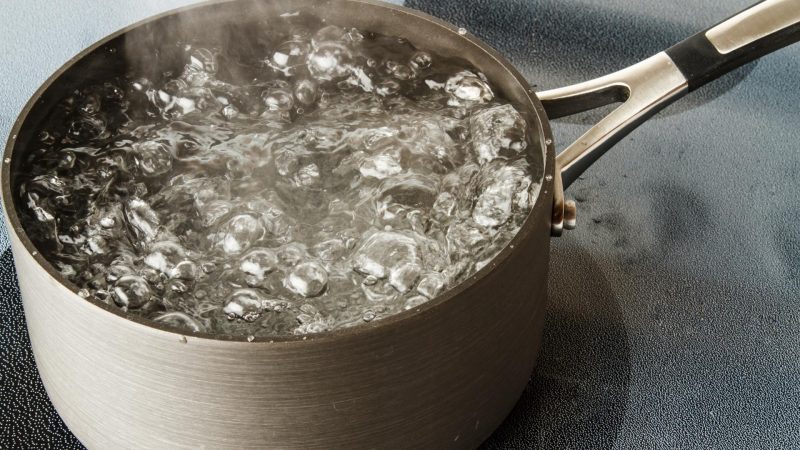
If you see ant holes close to your home, you can pour boiling water into them. This is an effective way of killing ants right away. It might not be enough to kill the entire colony, but many ants will still get killed.
2. Borax
No products found.
Borax is an effective killer to various ant species, such as sugar ants, carpenter ants, and even fire ants. However, you should mix it with the favorite food of ants, such as sugar.
Just add:
- 1/2 cup of water
- 1.5 tablespoons of borax
- 1.5 cups of warm water
Mix all the given ingredients and make sure they blend well. Once done, put the bait near the ants’ mound to consume. This interferes with the digestive system which will eventually kill them.
3. Chalk
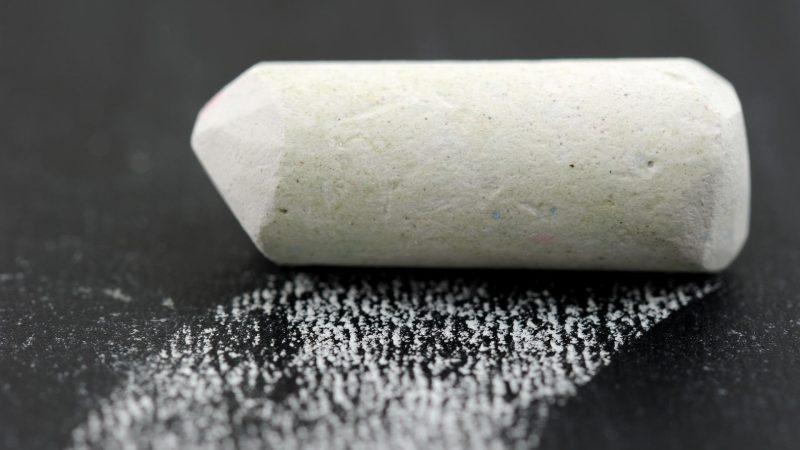
Another option you have in getting rid of your ant dilemma is by using chalk. Its calcium carbonate content will repel ants due to its compressed marine animals’ shell composition.
Simply draw a line to the entry points, and it will prevent the ants from crossing your property. Scattered powder chalk in the garden is also a great way to keep ants away from your plants.
4. Citrus
Citrus, such as grapefruit, orange, lemon, and lime works best in deterring ants by covering their scent trails temporarily. Just get a clean spray bottle and squeeze citrus into the bottle.
Spray it to the affected area, at entry points, and where you frequently see ants. You can also wipe the purred orange peel and water blend to door jambs and window sills.
5. Coffee Grounds
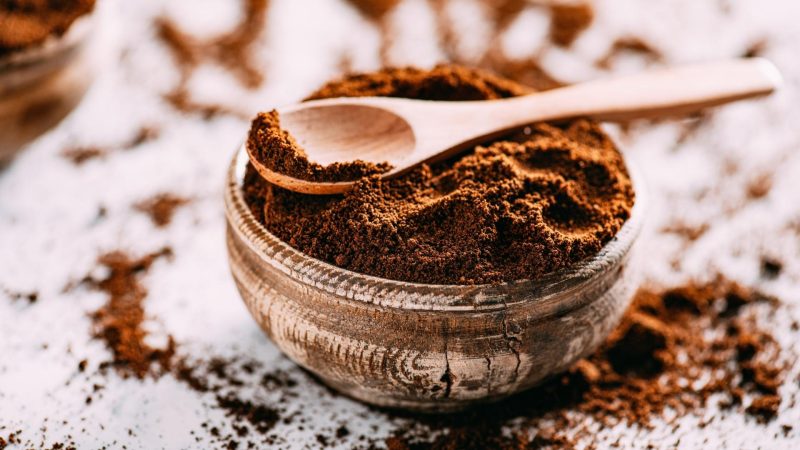
Coffee grounds have been a great ant-repellent for many years already. Just sprinkle the coffee grounds, particularly around the stems of your flowers and plants. The intoxicating smell of coffee repels the ants and its acidity causes them to feel discomfort while walking over it.
6. Cornmeal and Boric Acid
Cornmeal is great food for ants. Thus, it would make a great bait if mixed with boric acid. Just mix one portion of boric acid into nine parts of cornmeal. After that, add a substantial amount of soybean oil or peanut butter to make a paste.
No products found.
Put the homemade bait close to gaps and crevices or where you frequently see ants. Make sure to keep this inducement away from animals and kids.
Related: Does Boric Acid Kill Ants? | A Detailed Guide
7. Diatomaceous Earth
Diatomaceous earth comprises diatoms—the fossilized remains of aquatic organisms. This kills ants by consuming the oils of their skeletons, dehydrating them, and leaving them to die.
However, since diatomaceous earth is an irritant, make sure you won’t breathe it or get it on your skin. To apply this, sprinkle it directly into the ants or their mounds or nests.
8. Essential Oils
Essential oils, such as peppermint, lavender, neem, and tea tree oil, are excellent deterrents to ants. All you need to do is mix your chosen oil with water and spray it directly in the affected areas.
You can use any of the following oils:
Tea tree oil is known to kill and repel ants effectively. To make the tea tree solution:
- Step 1: Get 2 cups of water and mix it with 5 to 10 drops of water.
- Step 2: Once done, put the mixture into a clean spray bottle and spatter it on the ants or in the suspected areas.
You can also soak cotton balls with tea tree oil and put them around the place where you frequently see them. If the odor is too strong, you can blend tea tree oil with water and peppermint. Make sure to keep the tea tree oil away from your pets as they can get very ill when exposed to it.
No products found.
Peppermint oil is a natural ant, mosquito, and other bug repellents. To make the peppermint oil solution:
- Step 1: In a mixing bowl, put 2 cups of water and mix 10 to 20 drops of peppermint oil.
- Step 2: Transfer the mixture into a clean spray bottle and spritz it around your windows, baseboards, and home.
- Step 3: Once the application is done, let it dry. Ensure your pets aren’t exposed to peppermint oil to avoid them from getting sick.
No products found.
Lemon Eucalyptus Oil
This oil is extracted from the lemon eucalyptus tree and is known for being an effective bug killer. The oil contains citronella, which is used in candles to repel ants, mosquitoes, and other insects.
To apply, soak the cotton balls with pure lemon eucalyptus oil and put them into the areas where ants are rampant. For the best result, change the cotton balls weekly. Make sure to also keep the essential oil away from the reach of children or pets for their safety.
No products found.
Cinnamon oil contains compounds like transcinnamaldehyde, known for effectively killing and repelling ants. All you need to do is soak the cotton balls with the oil and leave them on ants’ mounds or where you typically see them.
You can also sprinkle the cinnamon powder around baseboards and window sills to deter them from entering your home.
No products found.
Related: Essential Oils for Ants: What Essential Oil Gets Rid of Ants?
9. Flour
Using flour is convenient in keeping ants off their tracks. Just apply a substantial amount of flour at window sills or across the foundations of your home. Moreover, you can also use a sifter to apply flour dusting directly on their path to intrude their pheromone trail.
10. Fresh Mint
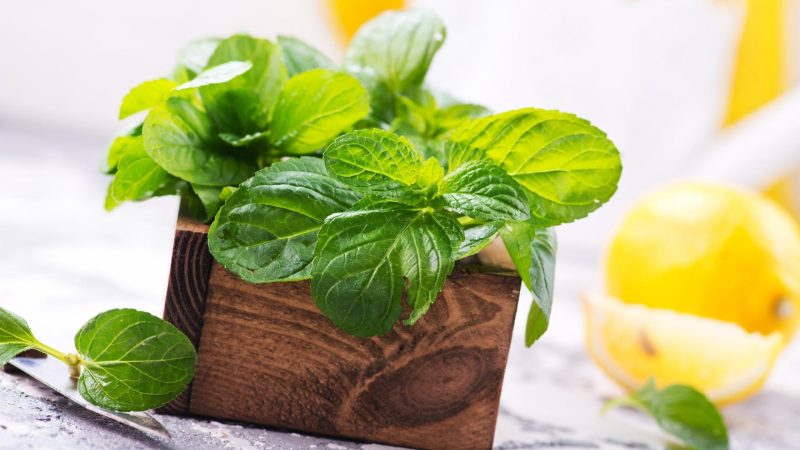
Ants dislike the strong aroma of fresh mint. So, planting it around your house can discourage ants from entering your place while giving off a pleasant scent to your surroundings.
You can also opt for minty essential oils, such as:
- Thyme
- Rosemary
- Peppermint
- Wintergreen
- Clove
- Geranium
11. Lemon Juice
Another natural option you have to get rid of ants in your place is by using lemon juice. To apply:
- Step 1: Spurt some lemon juice on windowsills and door thresholds.
- Step 2: Squeeze the juice into cracks and holes that serve as entry points to ants.
- Step 3: After that, scatter the tiny slices of lemon peels in your outdoor entrance.
12. Pepper
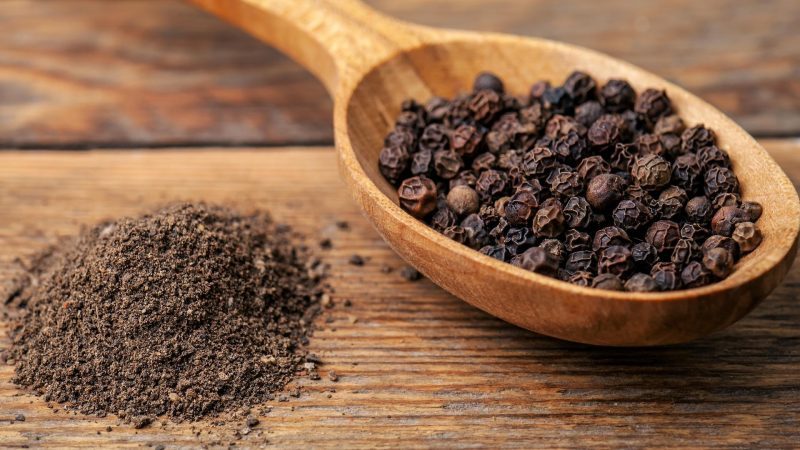
Although pepper doesn’t eliminate your ant problem, its strong odor discourages them from coming to your place again. In addition, this also erases the scent trail that gives ants direction to find their food.
To use pepper, get a clean spray bottle and add enough water. After that, add pepper and spray it on the entry points to keep ants at bay. You can also follow ant trails so that you can discern their nests right away and spray at them too.
13. Sugar
Since ants like sugar, it’s an ideal bait to lure these pests and inflict significant damage to their colony. To do this:
- Step 1: In a mixing bowl, mix equal parts of sugar and baking soda.
- Step 2: Once done, place it near the ants’ mounds or where a line of ants is present. They will carry the bait into their nest and eat it.
14. White Vinegar
Use three parts of white vinegar and one portion of water. Mix the two thoroughly and put the mixture in a bottle spray. After that, spray it to the affected area or in places where you frequently see ants crawling. Prioritize spraying the doorways and yard.
You can also use this to mop your floor as this is a good disinfectant, apart from being a good repellent to ants. Just mix a bit of white vinegar into a bucket of water, and you’ll have your disinfectant plus insect repellent.
Related: Does Vinegar Kill Ants? | Effective Ant Control Guide
Summary
Since ants are threats to food, wood structures, and health, it’s best to deal with them right away. You can either use natural ways, such as listed above or go for pesticides. Furthermore, you can also call a local pest control professional to deal with your ant infestation problem.
Related: How to Get Rid of Ants | Ultimate Guide
List of Sources
Alder, P., & Waldvogel, M. (2018). Tips for Effective Ant Baiting.
Bond, C., Buhl, K., & Stone, D. (2013). Citronella General Fact Sheet.
Carson, C. F., Hammer, K. A., & Riley, T. V. (2006). Melaleuca alternifolia (Tea Tree) oil: a review of antimicrobial and other medicinal properties.
- Bed Bug Surge 2025: How to Detect, Prevent, and Safely Eliminate Infestations in Top U.S. Cities - June 18, 2025
- Asian Needle Ants Invade US Homes: 2025 Guide to Identification, Risks, and Effective Control - June 11, 2025
- New World Screwworm Alert: How US Livestock Owners Can Prevent Outbreaks and Protect Herds [Summer 2025 Update] - June 8, 2025

